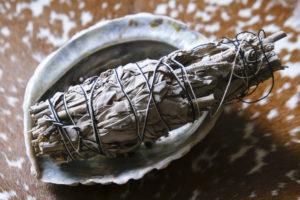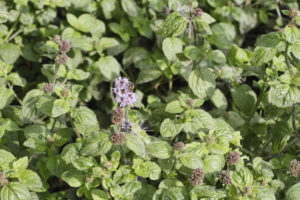The Health Benefits of Native Herbs
For many health conscious people, medicinal herbs and herbal supplements have been an avenue of treatment preferable to prescription medication, largely due to some skepticism about the ingredients and addictive nature of those medicines. Herbal remedies have been used for many years to treat a wide range of ailments, and many popular pills use plants as key ingredients. However, any herb that is strong enough to help can also be strong enough to hurt, and if herbal supplements are your preferred method of healing, then you must consult with a medical professional before starting a course of herbal treatment. That being said, on this National Herbs and Spices Day, we decided to highlight some common California herbs used to treat a variety of conditions.
California Poppy
- California state flower
- Flowers are usually orange, red, yellow, or white
- Partial to dry weather
- Used for insomnia, anxiety, relaxation, aches, and bladder problems
White Sage
- White flowers
- Strongly scented
- When made into a tea, can help with indigestion, colds, and excess sweating
- The tea has been used to treat wounds
- Excessive use can result in nausea
- White sage contains eucalyptol, or cineole, which kills bacteria
Wild Ginger
- Found near creeks and springs in the Santa Cruz Mountains
- Dark green, heart shaped leaves
- The leaves are not edible, but give a spicy, ginger scent when crushed
- Most common medicinal usage is for indigestion and bowel issues; also for inducing sweat
- Roots can be dried and made into a tonic, while the leaves can be made into tea
Brook Mint
- Flowers can be white, purple, or pink
- Usually grows in moist areas, like close to streams and rivers, under 7000 ft
- Fresh aroma
- Can be used for stomach distress when made into a tea, and the aroma can help with congestion
- When made into an oil, can be used to treat burns, rashes, and athlete’s foot
Is this medically sound?
While some studies have been done on the health benefits of the above herbs and spices, they are no substitute for treatment by a medical professional. Most herbal remedies and supplements have not been evaluated by the FDA, and therefore, they cannot be officially labeled as cures or treatments for whatever ailments. However, they are subject to some FDA regulations. According to the FDA, “Manufacturers and distributors of dietary supplements and dietary ingredients are prohibited from marketing products that are adulterated or misbranded. That means that these firms are responsible for evaluating the safety and labeling of their products before marketing to ensure that they meet all the requirements of DSHEA and FDA regulations.” As stated above, before starting any herbal regimen, you should speak to your doctor to verify that that method of treatment will work for you.
If you have questions about starting herbal treatments for a particular ailment, consult a Healthpointe doctor today! Call (888) 824-5580 or make an appointment here.



